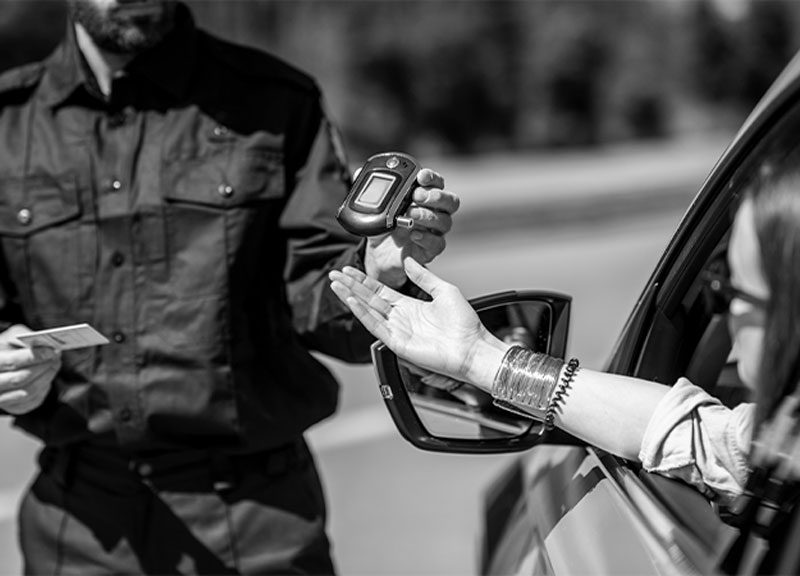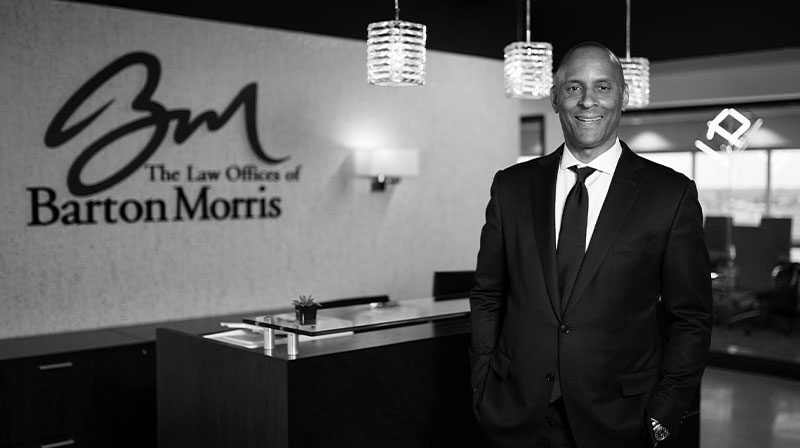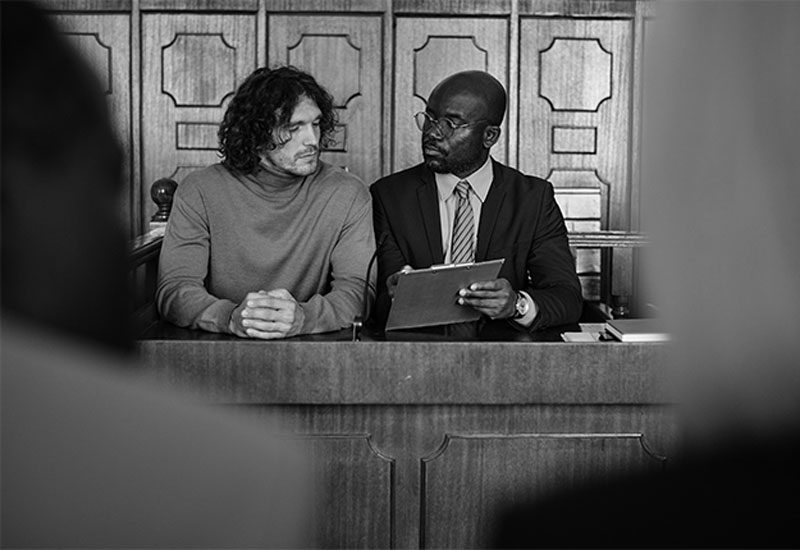Michigan DUI Defense Attorneys
Arrested for Drunk Driving in Michigan? We Challenge Unlawful Stops, Faulty Tests, and Careless Reports.
If you have been charged with a DUI in Michigan, you need skilled legal representation from attorneys who understand the complexities of Michigan DUI laws. We’re commitment to excellence in DUI defense sets us apart from other law firms. Barton Morris himself is proud to be the President of the Michigan Association of OWI Attorneys (MIOWIA). Attorney Barton Morris is Michigan’s only Forensic Lawyer-Scientist designated by the American Chemical Society, making him uniquely qualified to handle your DUI case. This specialized certification gives him unparalleled insight into the scientific aspects of DUI evidence, including breath and blood testing procedures.
Facing DUI charges in Michigan? Call (248) 712-1156 for a free consultation with our expert DUI defense team.

Understanding Michigan DUI Laws and Terminology
What constitutes an OWI in Michigan?
- BAC (Blood Alcohol Content) of .08 or higher
- Being under the influence of alcohol or drugs
Michigan also recognizes a more severe charge known as “Super Drunk Driving” for drivers with a BAC of .17 or higher. This enhanced charge carries significantly more severe penalties than a standard OWI.
Michigan DUI Penalties: What You’re Facing
Michigan’s drunk driving laws are among the toughest in the nation, with penalties varying based on whether it’s your first, second, or third offense.
First Offense DUI Penalties in Michigan
- Up to 93 days in jail
- Fines between $100 to $500
- 360 hours (45 days) of community service
- Vehicle immobilization at the court’s discretion
- Possible ignition interlock device during probation
- Driver’s license restrictions
Second Offense DUI Penalties in Michigan
- Mandatory minimum of 5 days in jail with a maximum of one year
- 30-90 days of community service
- Maximum fine of $1,000
- License revocation for at least one year (if within seven years of prior conviction)
- Required license restoration hearing with the Secretary of State (SOS)
Third Offense DUI Penalties in Michigan (Felony)
- $500-$5,000 fine
- 1-5 years imprisonment OR 30 days to 1 year in jail followed by probation
- 60-180 days of community service
- Vehicle immobilization or forfeiture
- Substance abuse counseling, treatment, and education
- Mandatory minimum of 30 days in jail
Super Drunk Driving
Why You Need a Specialized Michigan DUI Attorney
DUI cases are among the most complex in the criminal justice system, requiring specialized knowledge that most general practice attorneys simply don’t possess. A great Michigan DUI defense lawyer will have expertise in detection, enforcement, and testing to ensure that all aspects of the case—such as traffic stop validity, field sobriety tests, and chemical testing—are thoroughly examined. They will challenge any errors in the process and use their understanding of scientific evidence to build a strong defense aimed at protecting your rights and minimizing the consequences of your charges.

DUI Detection and Enforcement
Standardized Field Sobriety Testing
The three standardized tests administered in Michigan DUI cases are:
- Horizontal gaze nystagmus (HGN)
- Walk-and-turn test
- One-leg stand test
An experienced DUI attorney knows how these tests should be properly administered and can identify when officers fail to follow proper protocols.
Chemical Bodily Alcohol Testing
Michigan uses three different tests to determine a driver’s bodily alcohol content:
- Preliminary Breath Test (PBT) – Administered roadside before arrest, not admissible as evidence of BAC
- Datamaster DMT Breath Test – Administered at the police station, typically twice, admissible in court if properly administered
- Whole Blood Test – Can be drawn pursuant to consent or a search warrant, must be drawn by a qualified person under a doctor’s supervision
As Michigan’s only Forensic Lawyer-Scientist, Barton Morris is highly qualified to challenge the scientific evidence in DUI cases.
Need help challenging your DUI test results? Contact our team of experts today.

What Makes Barton Morris Michigan’s Premier DUI Defense Firm
Our firm stands apart from others due to our specialized training, experience, and approach to DUI defense.

Unmatched Qualifications
- President of the Michigan Association of OWI Attorneys
- Michigan’s only Forensic Lawyer-Scientist designated by the American Chemical Society
- Only criminal defense lawyer contributor on Michigan Impaired Driving Safety Commission’s report on THC and driving
- Board member for multiple prestigious legal organizations
- Faculty for National College for DUI Defense and the DUI Defense Lawyers Association
Trial Experience That Makes a Difference
Scientific Expertise
- Metrology
- Analytical chemistry
- Biological chemistry
- Medical science
- Understanding how medical conditions may interfere with chemical testing

Our Proven DUI Defense Strategies for Michigan Cases
Our attorneys implement tailored defense strategies to challenge every aspect of your DUI case.
1. Challenging the Traffic Stop
2. Questioning Probable Cause for Arrest
3. Challenging Breath Test Administration
Michigan Administrative Rules place strict requirements on how breath tests must be administered. Common issues we identify include:
- Improper machine maintenance and calibration
- Failure to observe the 15-minute waiting period before testing
- Operator error or lack of proper certification
4. Blood Test Defense Strategies
Blood tests, while considered more accurate than breath tests, are still subject to numerous potential errors. We examine:
- Whether proper blood collection tubes and stoppers were used
- If proper needle size and insertion techniques were employed
- If the blood specimen was free from contaminants
- If the person drawing blood was properly trained and qualified
- Whether there was proper chain of custody for the sample
As Michigan’s only forensic lawyer-scientist, Barton Morris has completed the Axion Lab’s Hands On Forensic Chromatography Course, learning exactly how blood alcohol testing is performed at the Michigan State Police Forensic Science Division.
5. Field Sobriety Test Challenges
Specialized DUI Cases We Handle
The Michigan DUI Court Process: What to Expect
When facing DUI charges in Michigan, understanding the court process is essential. Our attorneys guide you through each step:
1. Initial Client Interview
During this crucial meeting, we gather all necessary information about your case and begin building your defense strategy.
2. Arraignment
This is your first court appearance, where you’re formally advised of the charges and your rights. We can often waive this appearance with a written filing.
3. Attorney Investigation
We immediately request all relevant evidence, including:
- Booking room video (must be obtained quickly before deletion)
- Police in-car video
- Police reports
- Breath test maintenance records
- Operator training records
- Blood test analysis data
4. Chemical Test Refusal Hearing
If you refused a chemical test, a separate hearing will be scheduled with the Secretary of State. We use this opportunity to cross-examine the arresting officer under oath.
5. Pre-Trial Conference
At this hearing, we negotiate with prosecutors and discuss possible resolutions. We always enter these negotiations fully prepared with knowledge of your case’s strengths and weaknesses.
6. Motion Hearings
We file strategic motions challenging key aspects of the prosecution’s case, such as the legality of the traffic stop or the admissibility of test results.
7. Trial
If your case goes to trial, we present a strategic defense based on our extensive trial experience and specialized knowledge of DUI science and law.
8. Sentencing
If a conviction occurs, we work to minimize penalties and advocate for alternatives to incarceration.
Our Commitment to DUI Defense Excellence
What sets our firm apart is our commitment to continuous learning and mastery of DUI defense. We regularly attend and teach at the nation’s most prestigious DUI defense training programs:
The National College of DUI Defense (NCDD) seasonal seminars
DUI Defense Lawyers Association (DUIDLA) national training events
Michigan Association of OWI Attorneys (MIOWIA) specialized seminars
Contact Michigan’s Premier DUI Defense Team Today
When your freedom, driving privileges, and future are at risk, you need the best DUI defense available. The Law Offices of Barton Morris combine scientific expertise, legal knowledge, and trial experience to fight for the best outcome in your DUI case.
Facing DUI charges in Michigan? Don’t wait. Call (248) 940-3757 today to schedule your free consultation.
Free Consultation
